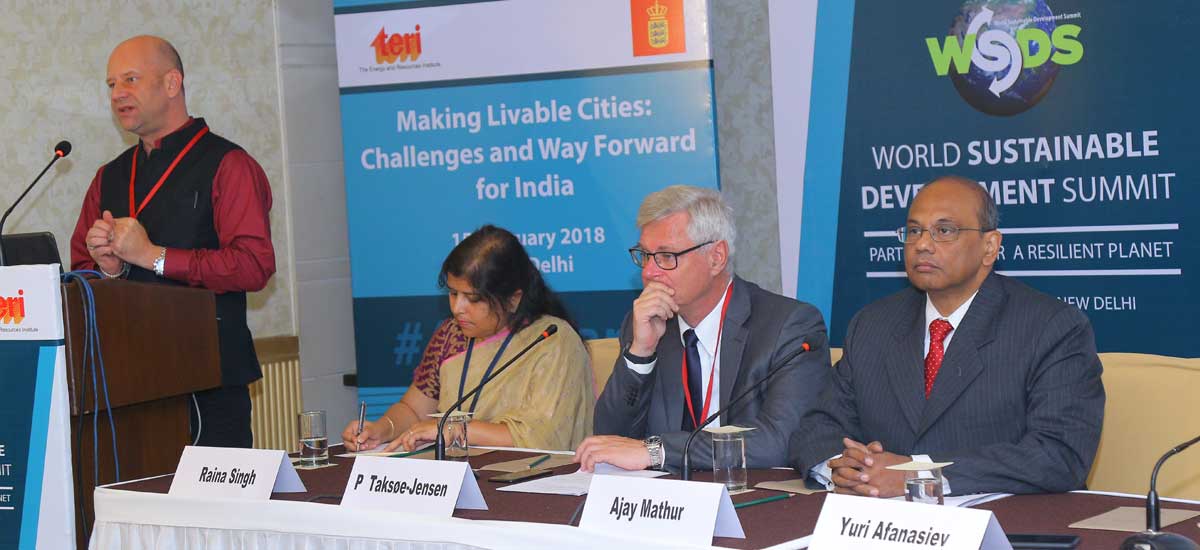
Can we make our cities liveable?
 Can we make our cities liveable?: Panelists at WSDS 2018 discuss challenges and enablers of sustainable urbanization
Can we make our cities liveable?: Panelists at WSDS 2018 discuss challenges and enablers of sustainable urbanization
That global urbanization is rapid and unavoidable is a universal truth. Unless a timely and smooth shift towards sustainable urbanization is made, global resources will continue to face increasing pressure. Academics, industry experts, and policymakers convened at the World Sustainable Development Summit, 2018, to deliberate upon a roadmap towards 'Making Liveable Cities: Challenges and Way Forward for India'. Speakers included HE the Ambassador Peter Taksøe-Jensen, Royal Danish Embassy in India; Mr Yuri Afanasiev, UN Resident Coordinator and UNDP Resident Representative in India; and Pier Roberto Remitti, Program Director, International Urban Cooperation, India amongst others.
With more than 40% of India’s population expected to reside in urban centres by 2050, it becomes an imperative for the country to redesign its infrastructure and systems. The 11th Sustainable Development Goal calls for making cities and human settlements inclusive, safe, resilient, and sustainable. In alignment with this goal, The Energy and Resources Institute (TERI) and the Danish Embassy in New Delhi plan to initiate a policy dialogue series enabling smart and sustainable cities in India.
Innovation is Key
Calling urbanization a mega trend for the next 20–30 years, Yuri Afanasiev, UN Resident Coordinator and UNDP Resident Representative in India, said it will be one of the top three priorities that will dominate development policy in the years to come. According to him, India is projected to experience urban migration of over 300 million people which would be unprecedented in human history. Therefore, it becomes imperative to rethink urbanization. Highlighting that a business-as-usual scenario will lead to one-third of the population living in urban slums without access to basic facilities like water and sanitation, he said while rapid urbanization poses tremendous pressure on resources, it also offers a window of opportunity.
It is estimated that between 60%–70% of the housing and infrastructure in India will develop in the next two decades. This presents the nation with an opportunity to build better, cheaper, efficient, and resilient infrastructure.
Mr Afanasiev said the United Nations Development Programme (UNDP) is looking at India to develop cost-effective and innovative solutions towards sustainable urbanization. These solutions can then be exported to other countries facing resource and financial constraints.
Requisites for Sustainable Urbanization
Reflecting on capacity building, Mr Swayan Pal Chaudhuri, CEO & MD, Imagine Panaji Smart City Development Corporation Ltd, felt capacity building of urban local bodies was a missing link that needs to be developed. According to Mr Pier Roberto Remitti, Program Director, International Urban Cooperation, India, said sustainable urbanization is not a matter of capital but of empowerment of local governance.
Bringing in a financial perspective, Bhupesh Rathore, President, Strategic Government Advisory, YES Bank, said sources of finance are critical in developing smart and sustainable cities. A participatory approach, he said, one where trust between lending financial institutions, government, and citizens is created, is the first step.